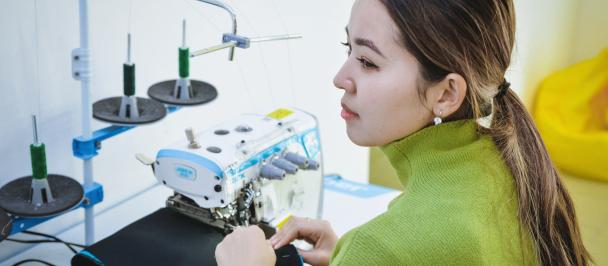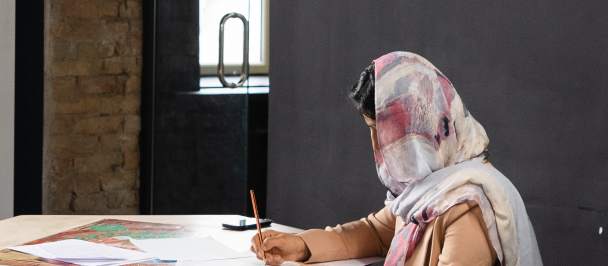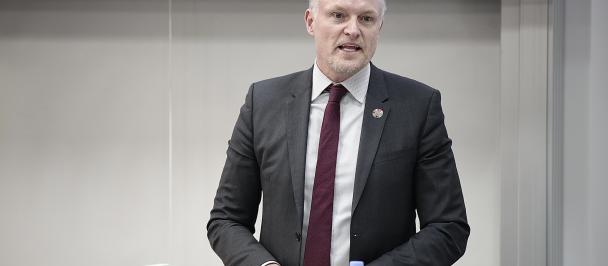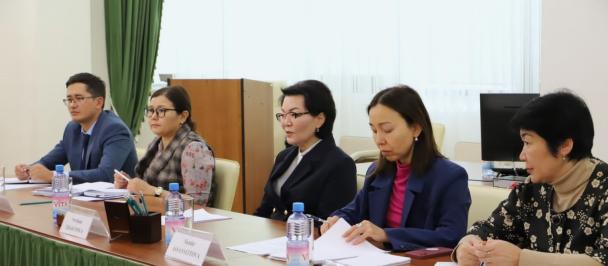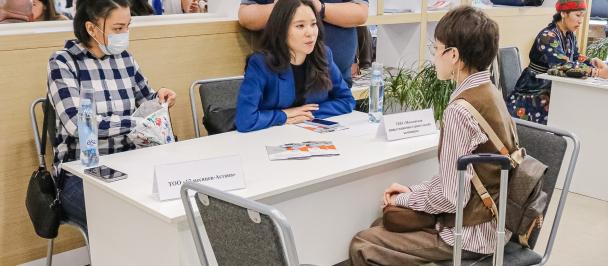Hope comes knocking for over 250 unemployed – Via UNDP and ADB supported 3-month paid apprenticeship
May 3, 2022
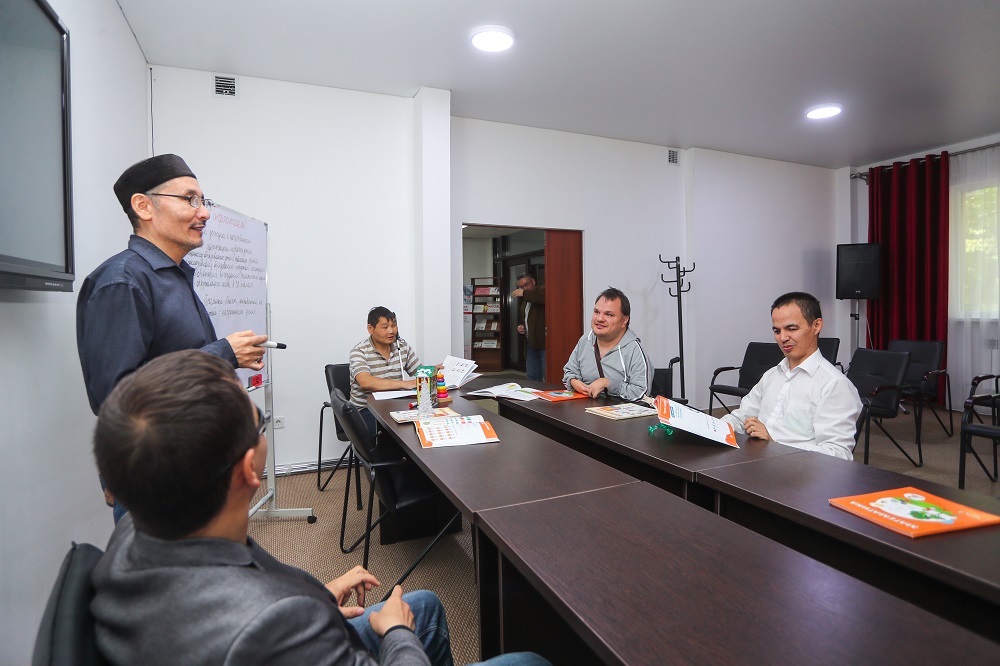
The pandemic lockdowns seriously impacted workers according to the Ministry of Labour and Social Protection of the Population of Kazakhstan: in Kazakhstan, 45.7 percent had to take unpaid leave or were laid off during the lockdowns.
To reduce the negative impact of the COVID-19 pandemic on the most vulnerable groups of the population and to adapt the country's labour market to the emergence of new industries and occupations in the post-crisis period, the Asian Development Bank (ADB) provided a US$1 million grant for the COVID-19 response project.
The project, "Solidarity Fund for Kazakhstan," is implemented by the United Nations Development Programme (UNDP) together with national partners – the Ministry of National Economy and the Ministry of Labour and Social Protection of the Population of Kazakhstan.
Under the project, a three-month subsidized apprenticeship programme was launched in September 2021 to support those who had lost their jobs, including persons with disabilities (PWDs) in the cities of Almaty, Shymkent and the Turkestan region (Arys). The project aims to support 250 people. Since its launch, 90 people have already completed paid internships in private and public organizations and NGOs.
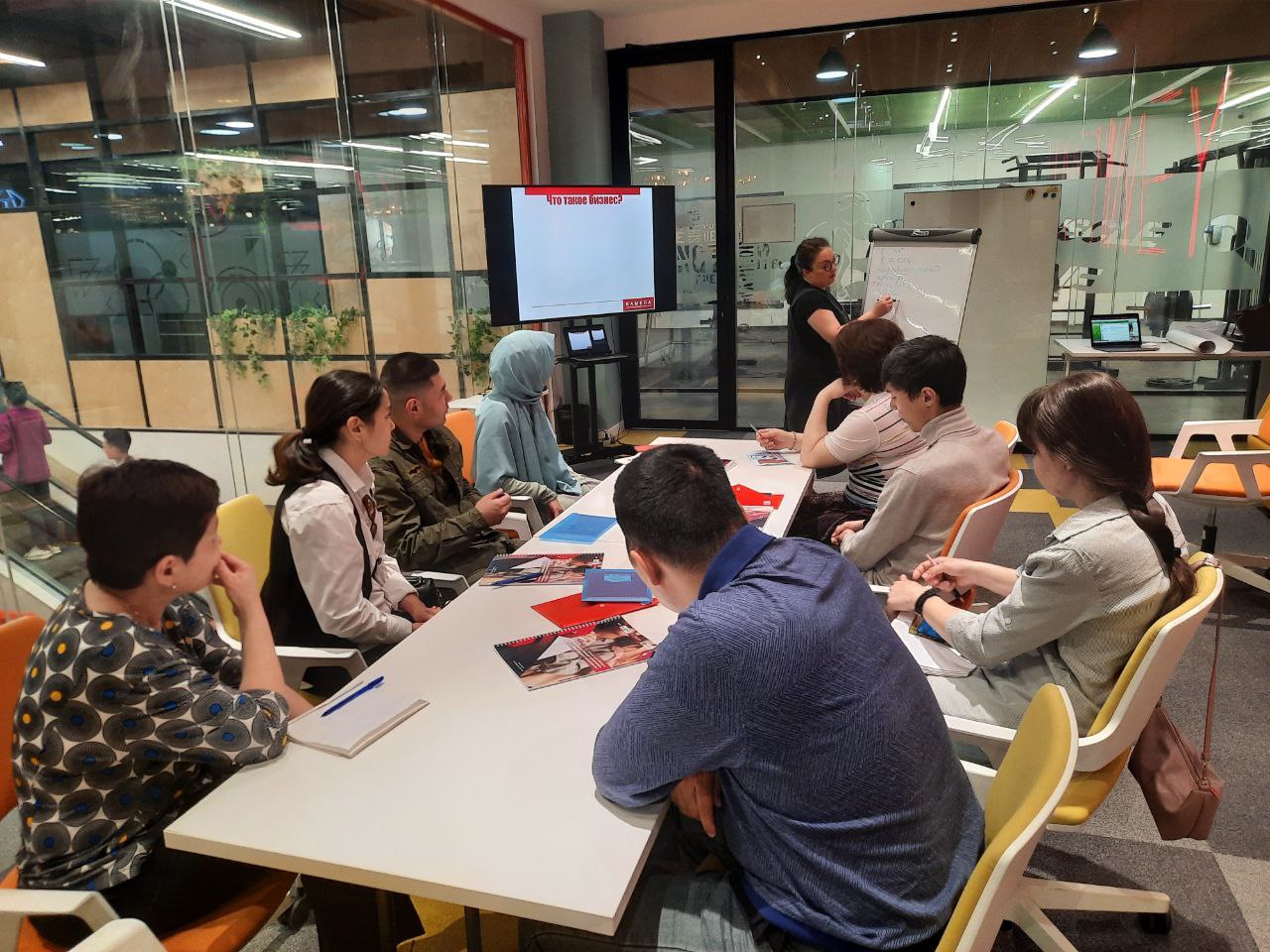
The Kameda Public Foundation, a long-time partner of UNDP in Kazakhstan, is the implementing agency of the apprenticeship programme. "We work with the labour offices in the regions to create the list of unemployed and most vulnerable populations. Once we select the participants, we interview them to identify their needs, skills and preferences and find the most suitable job for them. We try to rotate employers in each round," says Zhazira Stankulova, project coordinator at the Kameda Public Fund.
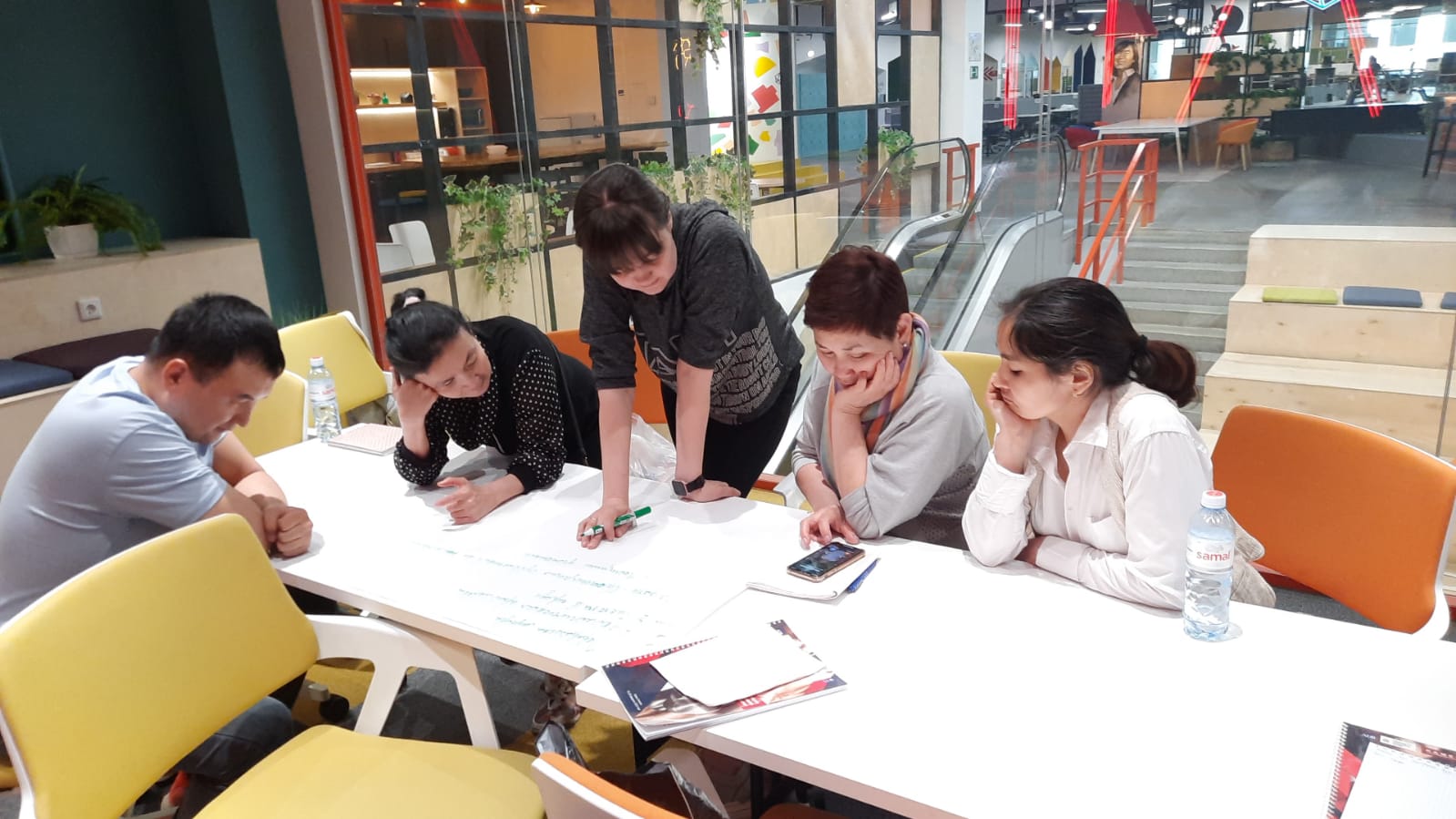
There is no age limit for the interns, the oldest being a person close to retirement age. During the internships, participants receive a monthly salary of ₸67,000, they are trained and supervised and they can receive psychological counselling.
Mentorship
Each intern is assigned a personal mentor who works with them to create a SMART map – a goal map on which the intern sets goals and charts ways to achieve them. At each meeting, the mentor and trainee discuss progress made and strategies for improving outcomes. Such meetings take place at least twice a week at the trainee's workplace or online.
In addition, the mentor holds a general meeting with all programme participants once a week. Between seven and ten trainees are assigned to each mentor. In total, nine mentors are assigned to this programme. They have all completed special training in working with interns and have the appropriate skills.
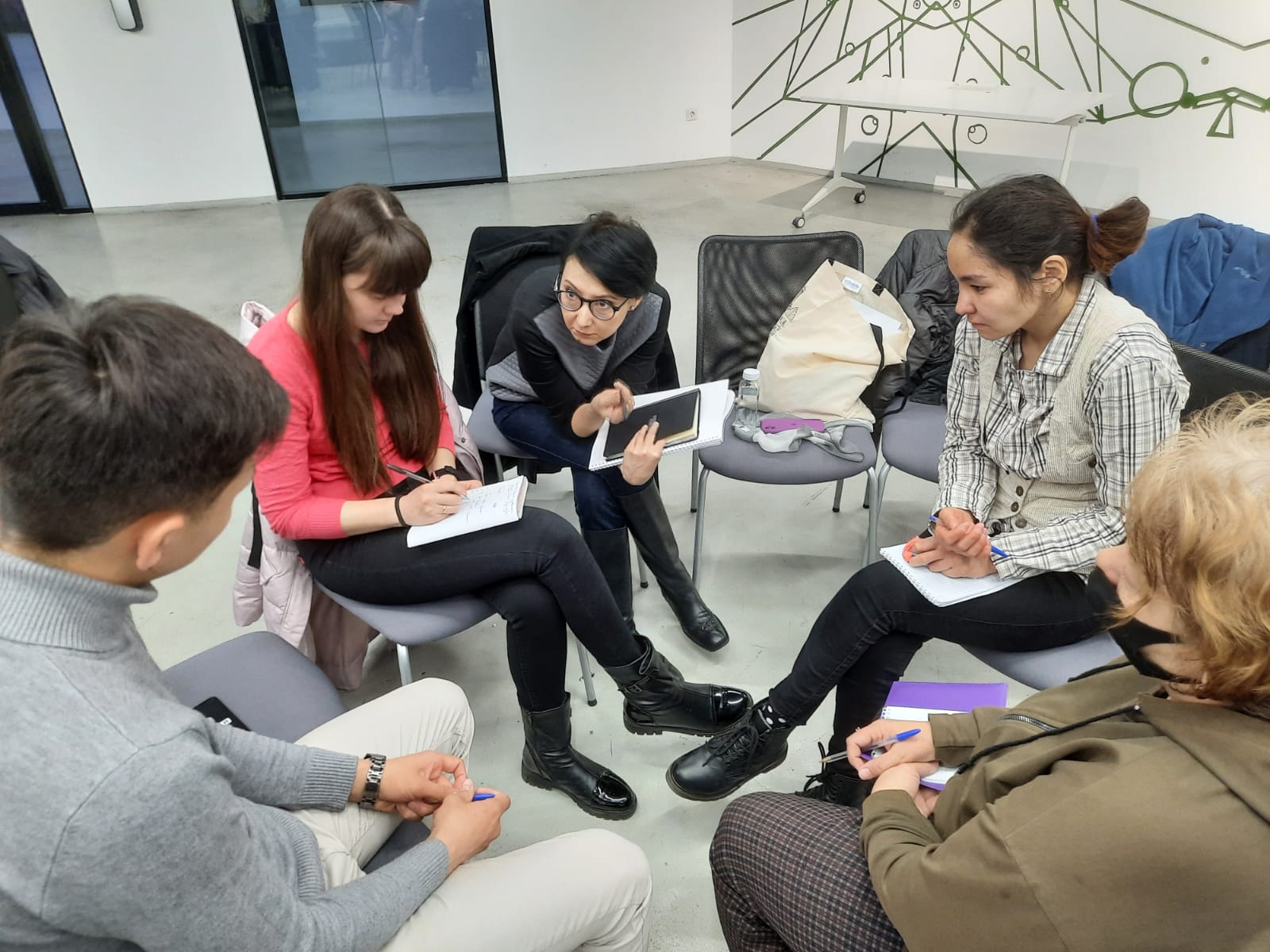
The participants of the apprenticeship programme work with mentors.
Training
In addition to personal mentoring, the interns also participate in three workshops to improve their professional skills. The workshops take place offline on weekends. "We provide the interns with all the resources and information to help them find employment: a list of useful employment websites, opportunities to participate in grants and projects," says Zhazira. "We also train them on how to write resumes and cover letters, and how to conduct themselves during interviews," she adds.
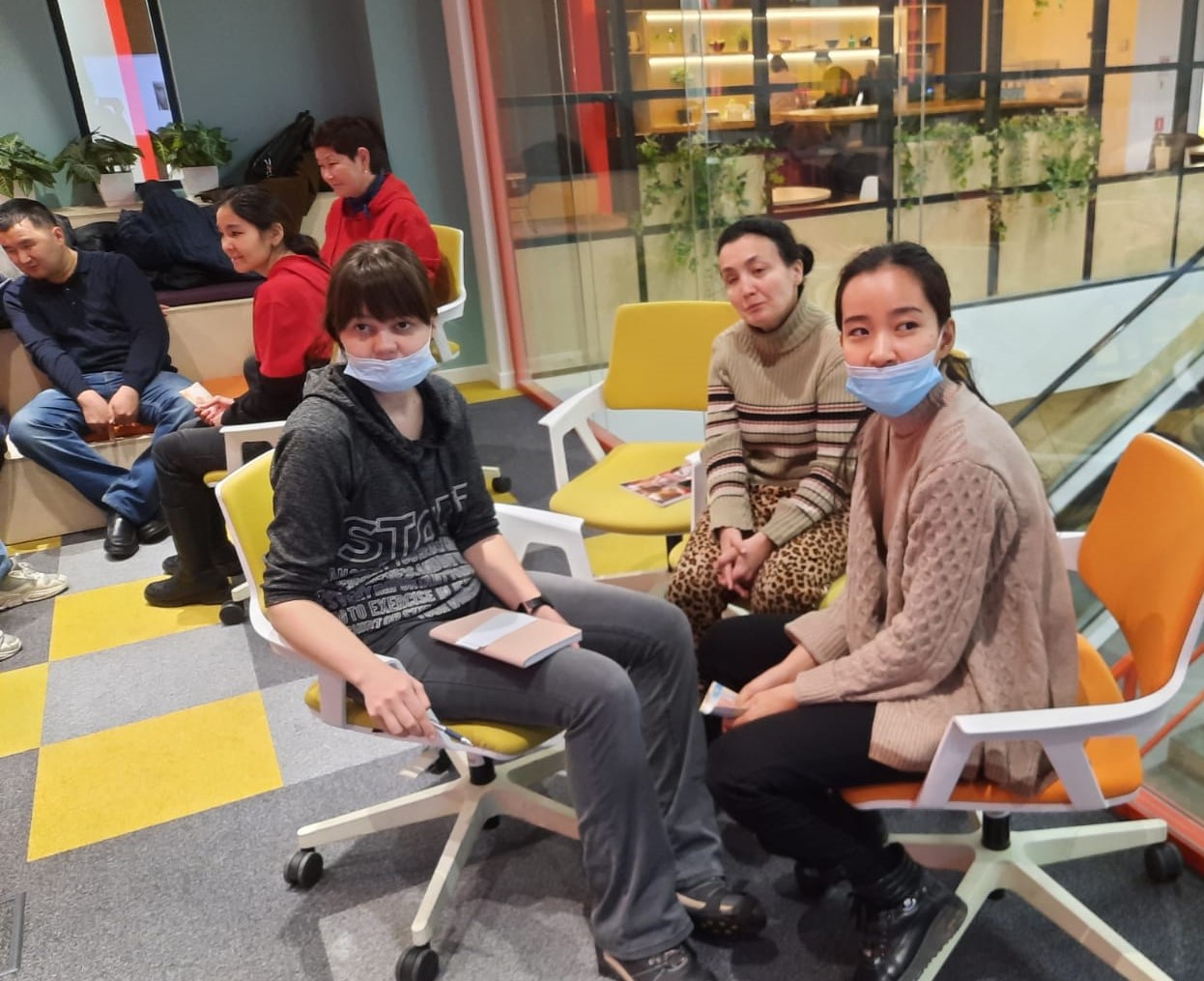
In addition to personal mentoring, the interns also participate in three workshops to improve their professional skills.
Psychological support
The pandemic crisis has had a negative impact on the mental health of many people, especially the unemployed and vulnerable populations. Therefore, participants have the opportunity to receive support from a psychologist during the internships. In total, three psychologists work on the project – one for each region. The recruited psychologists arrange consultation hours and offer support to anyone who needs it. "Some trainees, especially those with disabilities, have had multiple consultations with a psychologist," Zhazira says. "The psychologists' reports indicate that the counselling was very helpful to the participants," she adds.
Persons with disabilities
One of the programme's beneficiaries is Andrey Agapov, 29, a young man with a disability. He lost his job during the pandemic and could not be rehired for several months.
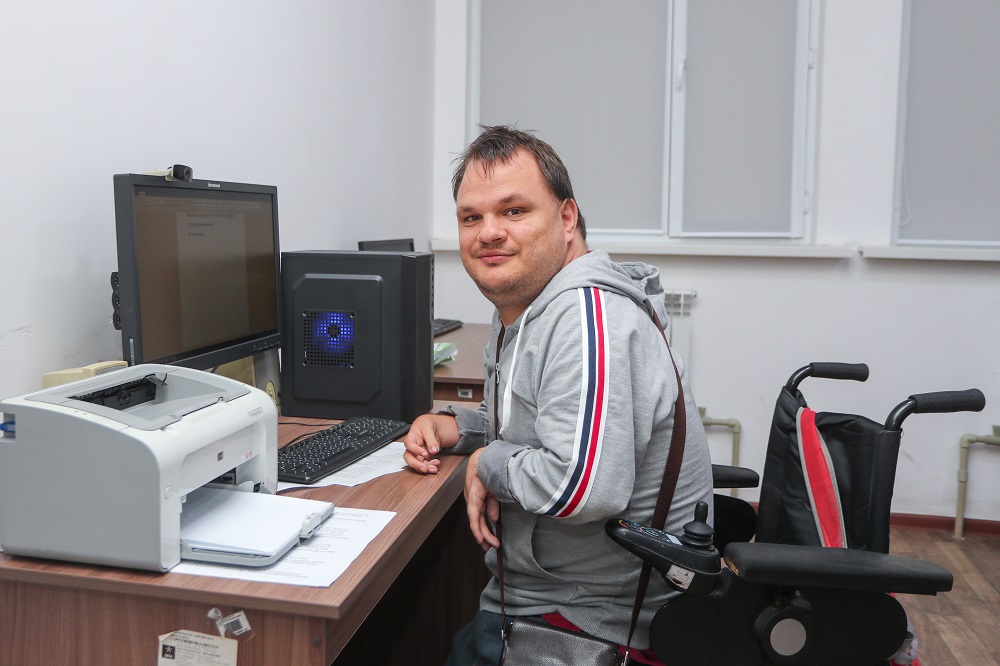
Andrej is at his workplace.
"Persons with disabilities are often perceived as incapacitated persons, which makes it very difficult for us to find a job," Andrey says. "The training helped me believe in myself and motivated me to do something great. The instructors explained everything to me clearly and simply. I learned a lot about the possibilities of starting my own business and was motivated to do it in the future," Andrej says.
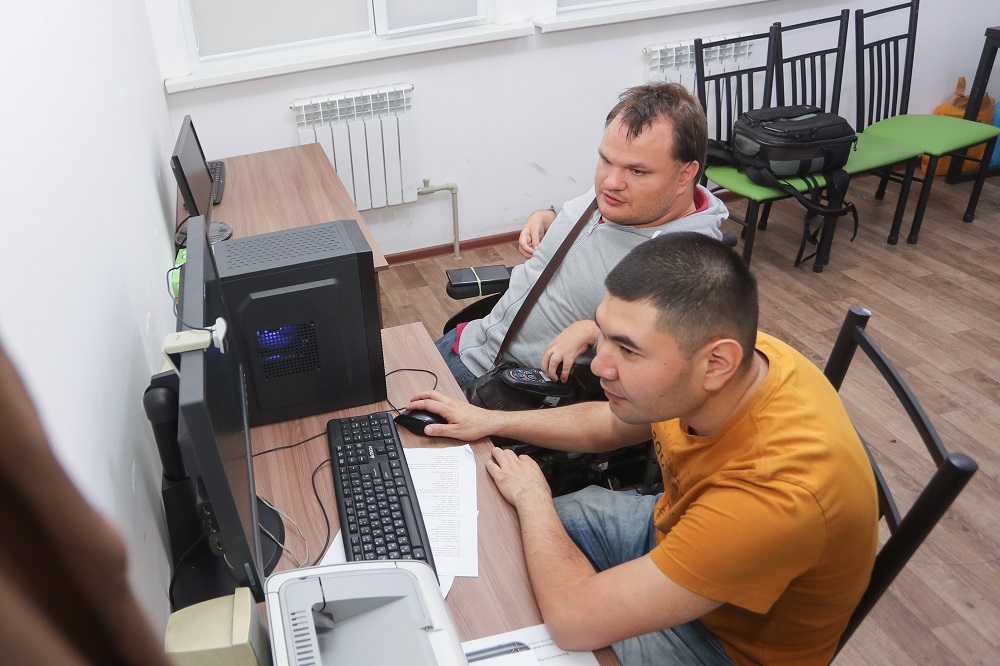
Andrej is giving an IT lesson to his student at his workplace.
He completed training as an IT specialist at the Public Association "KOS" in Almaty and is still working there. "I like my current job. Although as an IT specialist I can work from home, I prefer to go to the office. It’s a great opportunity for us PWDs to socialize and meet people," Andrey summarizes.
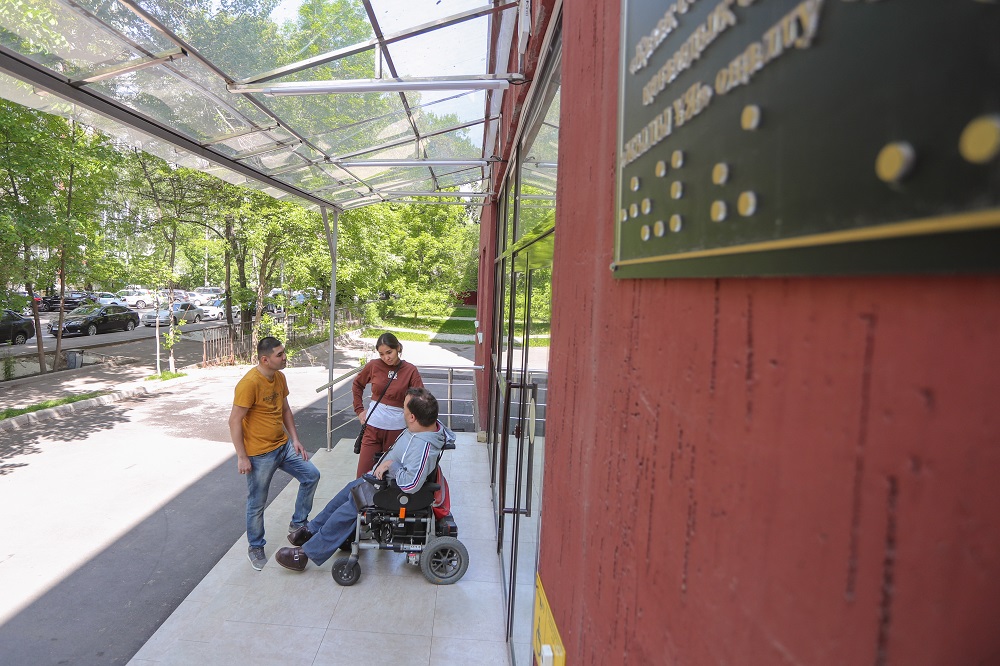
For Andrej, his workplace is a great opportunity to socialize and meet people.
Interim results of the programme
"The results of the first round show that more than 30 percent of the participants are continuing to work in the organizations where they completed an internship. But that does not mean the remaining participants have fallen by the wayside. Many of them started their own businesses, gained job skills or found employment elsewhere. We are seeing these guys undergo a transformation. Both employers and mentors mention this," Zhazira concludes.
The internship programme will run until September 2022 and provide employment opportunities for another 150 unemployed.

 Locations
Locations